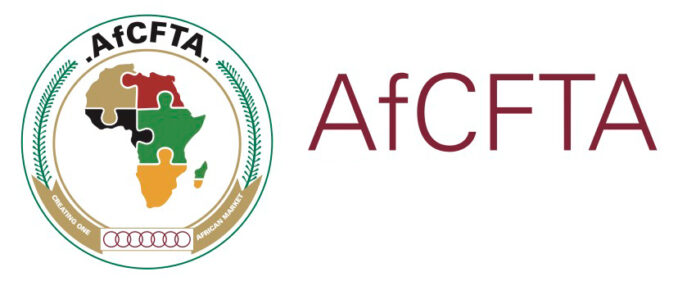Stakeholders have said that Nigerians are not harnessing all the opportunities offered by the African Continental Free Trade Agreement.
These stakeholders who spoke on Tuesday, during a roundtable on the AfCFTA and Trade-in-Services, organised by the Centre for International Private Enterprises, revealed that there are opportunities to render services under ACFTA for economic gains.
Speaking after the event, the consultant, Economic Community of West African States, Common Investment Market, Prof Jonathan Aremu, noted that Nigerians were familiar with import duty and other processes involved in the exportation of goods, but not accustomed to trade-in-services.
He also said that the essence of the gathering was to increase the capacity of Nigerian professionals who want to go into the business.
“We are familiar with import duty, cross border, various processes in terms of exporting of goods and documentation. But when it comes to trade-in services, people are not familiar with that. So, when these things come up under AfCFTA, a lot of people are not aware and that is why CIPE is saying you can equally trade under services and then try to increase the capacity of Nigerian professionals that want to go into that.”
Aremu disclosed that trade in services contributed 60 per cent to the country’s gross domestic product.
“What I have done so far is to allow people to know that trade in services is becoming a dominant sector that is contributing very close to 60 per cent of GDP despite oil. That is the sector people know nothing about, that is the sector where we have a very huge comparative advantage. It is a sector we need to encourage,” Aremu added.
According to him, “You can sit in your office here and sell your tradable commodities, which are services through the internet. People can also come and enjoy your services and you collect export money. But, again, if opportunities are provided here, what are the benefits? Nigeria has committed to the World Trade Organisation under trade and services, but we have increased our commitment to AfCFTA in terms of trading in services.”
Earlier, the Country Director and Programme Director of CIPE, Lola Adekanye, said, that for Nigeria to succeed in AfCFTA, there was a need for proper planning which entails bringing the private sector together.
“Nigeria will miss out on all the benefits of AfCFTA if the country doesn’t plan well, it is not about trade, it is also about development,” she said.
Also speaking, the Programme Director at CIPE Africa, Mary Odongo, mentioned poor access to finance as one of the challenges with trade in services.
“The bottlenecks include lack of access to finance and poor infrastructure policies among others. We can address this by setting up a coalition that includes all the trade-in-service players in the environment and using this coalition to address their challenges. Services are very important but because they are not tangible, we don’t see them, we focus more on the trade of goods. And just to say that trade-in service in Nigeria accounts for a little bit over 50 per cent of the GDP. The main thing is to address the challenges that are part of the trade-in services. There should be more dialogue, addressing power supply, and lack of finance for MSMEs,” she said.




















